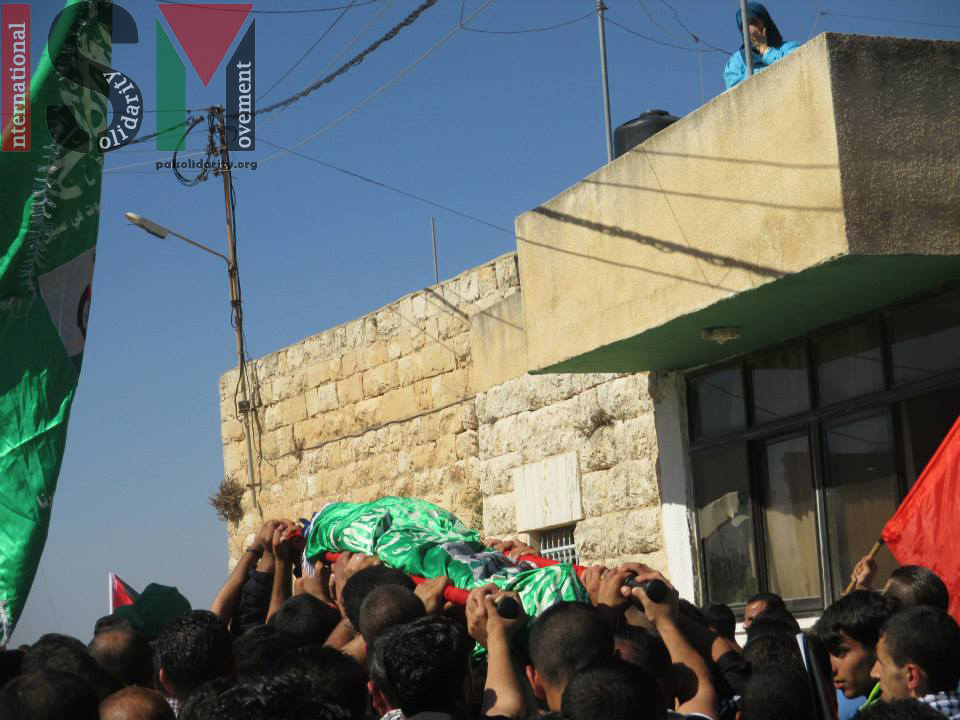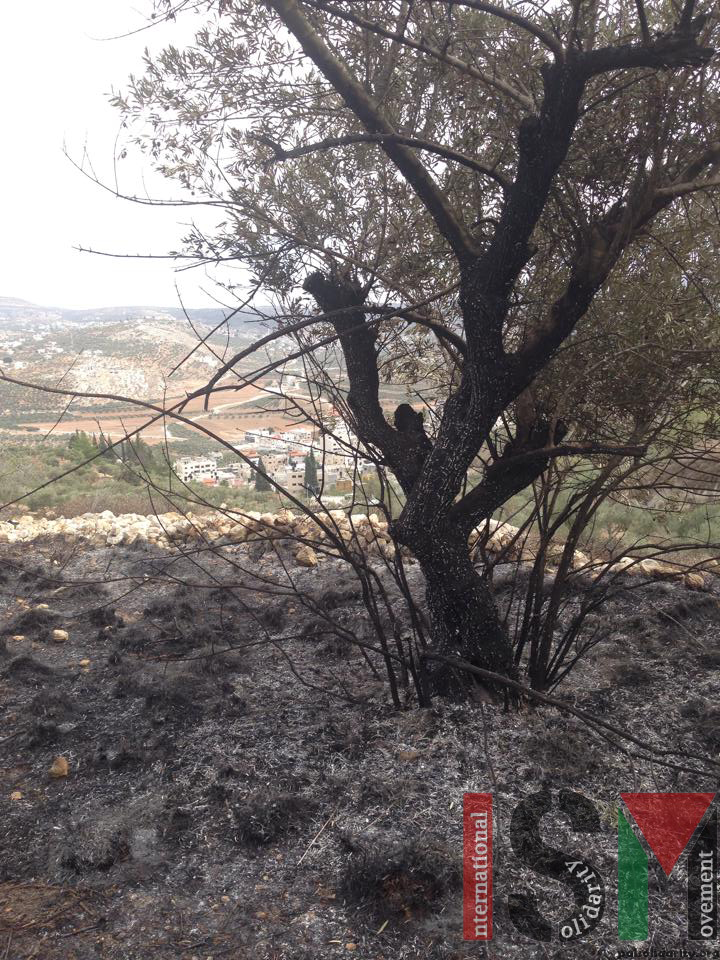Category: Reports
-
Israeli military demolishes a Bedouin village in the South Hebron Hills
28th October | Operation Dove | Um Al Kheir, Occupied Palestine Yesterday, Israeli forces demolished a total of seven structures in the Bedouin village of Um al Kheir. The structures demolished are, three houses made of concrete, a caravan donated by the United Nations (United Nations Human Rights Response Fund with the support of Ireland, Norway, Spain, Sweden,…
-
Clahes after funeral for murdered Orwa Hammad
27th October 2014 | International Solidarity Movement, Ramallah team | Silwad, Occupied Palestine Yesterday a funeral was held for 14-year-old Orwa Abd al-Hadi Hammad, shot dead by the Israeli military on Friday, in the small village of Silwad close to Ramallah. Orwa was shot dead by Israeli forces on Friday, during a demonstration at the edge of the small village of…
-
Zionist settlers burn Palestinian olive grove
22nd October 2014 | International Solidarity Movement, Nablus team | Huwwara, Occupied Palestine This morning at approximately 09:30, settlers from the illegal settlement of Yizhar set fire to a Palestinian olive field above Huwwara village, just outside of Nablus. The settlers set the land on fire from the top of the hill. People from the village…



